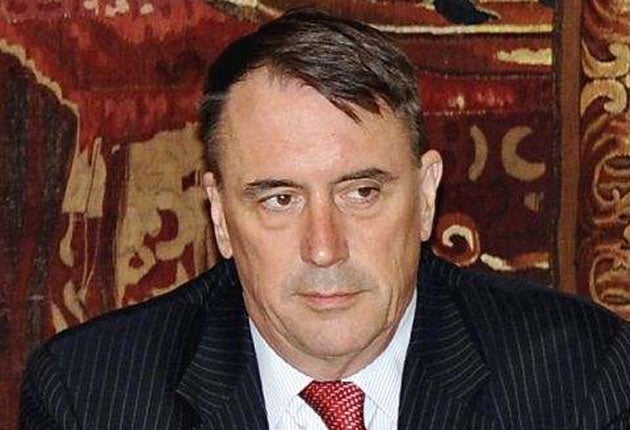Ousted: the US diplomat who wanted inquiry into Afghan vote
Peter Galbraith recalled by United Nations after row over disputed election

The senior American official at the United Nations mission in Afghanistan has been ousted after clashing with his superior over the recent fraud-ridden election. The angry row only underlines the acute difficulties the US and its allies face as they struggle to chart a way forward in the eight-year conflict.
Yesterday the UN confirmed that Peter Galbraith, the organisation's deputy special representative for Afghanistan, was being recalled by Ban Ki-moon, the secretary general – the culmination of a dispute that had long made it inconceivable that Mr Galbraith could ever return to his post.
As No 2 in the mission, Mr Galbraith was in charge of the UN's supervision of the 20 August election which returned President Hamid Karzai to power. But his insistence on a full investigation into the alleged massive ballot stuffing that marred the vote brought him into head-on conflict with his boss Kai Eide, head of the UN mission in Kabul, who favours a more cautious, less confrontational approach. It also made him virtually persona non grata with the Karzai government.
The clash, of both style and substance, split the UN mission. Neither Mr Eide nor Mr Galbraith bothered to conceal their differences. "The disagreement has been about how active the UN should be in promoting the goal [of free and fair elections]," Mr Galbraith acknowledged in a radio interview last week when asked about the turmoil. "Not surprisingly there are strong feelings within the mission."
The row became public last month, when Mr Galbraith returned to the US. His temporary absence was made permanent yesterday with a terse statement that he had been dismissed by the secretary general, who retained his "full support" for Mr Eide.
The announcement represents a victory not just for Mr Eide, a career Norwegian diplomat who has been the chief UN representative in Kabul since March 2008, but also for Mr Karzai. It proves once more that whatever the dissatisfaction of the US and its allies with the Afghan leader's performance, his removal is all but impossible.
Significantly, the removal of Mr Galbraith comes just days after the US and other Nato countries agreed to accept that Mr Karzai would be President for the next five years – to all intents and purposes burying the prospect of the run-off vote that would have been required had he failed to secure an outright majority. As it is, the latest tally gives the President 54 per cent, far ahead of his closest rival, the former foreign minister Abdullah Abdullah.
The decision, taken on the sidelines of last week's UN General Assembly, signalled that Washington and its partners wanted to put the contested election behind them, in order to focus on the war. With the harsh Afghan winter approaching, any run-off would almost certainly have to wait until spring, when it might interfere with renewed military operations against the Taliban.
Outspoken and deeply committed to human rights, the 58-year old Mr Galbraith – a son of the late economist John Kenneth Galbraith – has decades of experience of global hot spots.
Given America's leadership of the coalition waging the Afghan war, it is scarcely imaginable that his dismissal by Mr Ban was not approved by the Obama administration. His departure casts another shadow over the crucial discussions under way here over future strategy in the war – in essence a choice between stepping up the war on the ground by injecting up to 40,000 more US troops, or scaling back operations to focus on al-Qa'ida.
* An Afghan girl died after a box of information leaflets – dropped by a British military plane – landed on top of her, the Ministry of Defence said yesterday. The MoD is investigating the incident which occurred three months ago in a rural area of Helmand.
Join our commenting forum
Join thought-provoking conversations, follow other Independent readers and see their replies
Comments
Bookmark popover
Removed from bookmarks